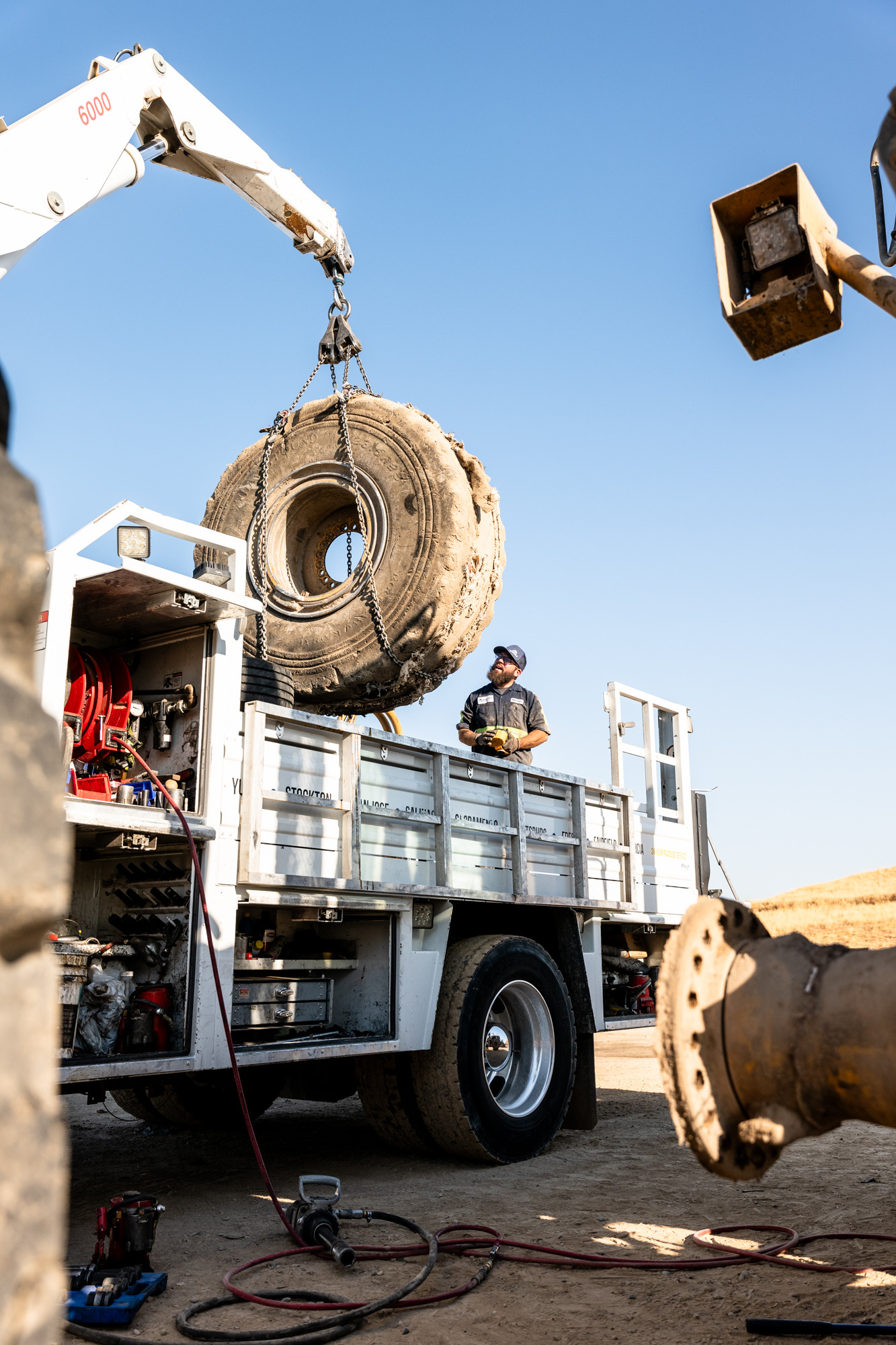Experience Accuracy with GMC Tire Service at Morris Tires
Experience Accuracy with GMC Tire Service at Morris Tires
Blog Article
Tire Service: The Effect of Climate Condition
When it pertains to making certain ideal efficiency and security on the road, understanding the impact of climate conditions on tire service is essential. From scorching warm to icy roadways, each weather condition aspect can substantially influence tire capability and total driving experience. By delving into the impacts of varying climate condition on tires, motorists can gain useful understandings that may enhance their automobile's performance and durability. In this discussion, we will certainly check out the intricate relationship between weather and tire solution, dropping light on the relevance of weather-specific tire upkeep practices and factors to consider.
Heat and Tire Efficiency
When revealed to high temperature levels, tires experience changes in efficiency that can considerably influence car security and handling. The heat produced from extended driving or hot climate problems triggers the tire rubber to soften, resulting in reduced walk life and enhanced wear. As the rubber comes to be softer, the tire's grasp when traveling diminishes, influencing braking ranges and total traction. In severe cases, too much heat can also create tire blowouts, posturing a serious security risk to the automobile and its owners.

Winter Impacts
Cold weather conditions can have a substantial effect on tire performance and safety. As temperature levels decline, tire rubber can set, resulting in lowered traction on icy or snow-covered roads. In cold weather condition, tires might also shed atmospheric pressure much more swiftly, which can impact dealing with and gas effectiveness. Furthermore, cool temperature levels can cause tire sidewalls to stiffen, enhancing the risk of damages from pits or other roadway risks.
To reduce the effects of winter on tires, it is critical to routinely examine tire pressure and inflate them to the maker's recommended levels. Utilizing winter or all-season tires designed for winter conditions can also boost traction and grip on icy or snowy roads. Correct tire upkeep, including regular inspections for wear and damage, becomes even much more vital throughout colder months to guarantee optimal efficiency and safety.
Rainy Issues Influence
Throughout stormy problems, tire efficiency and security can be substantially influenced by the damp road surface areas and minimized exposure. The step pattern of tires plays an essential duty in maintaining traction on damp roads. Tires with damaged footsteps are more vulnerable to hydroplaning, where a layer of water develops between the road and the tire surface, leading to loss of traction. To battle this, vehicle drivers must routinely evaluate their tires for sufficient walk deepness and think about investing in tires especially designed for damp problems.
In addition, rainy weather can additionally lower visibility, making it testing for chauffeurs to see the roadway ahead plainly (GMC Tire Service). In such conditions, it is vital to readjust driving speeds as necessary and maintain a secure following range to enable abrupt stops. Appropriately filled with air tires can also aid in keeping control on wet roads by giving far better handling and grasp
Snow and Tire Safety And Security
When driving in snowy problems, having the ideal tires go to this web-site can make a considerable difference in safety and performance. Winter months tires are designed with unique rubber substances and step patterns to offer much better traction on snow and ice compared to all-season tires.

It is essential to comply with producer instructions when mounting and using tire chains to avoid damage to the tires and lorry. By picking the right tires, preserving proper rising cost of living, and taking into consideration additional grip aids like tire chains, motorists can enhance their safety when browsing snow-covered roadways.
Weather-Related Tire Maintenance
When confronted with different climate conditions, appropriate tire upkeep becomes a critical aspect of car safety and security and efficiency. Weather-related tire upkeep includes an array of methods aimed at ensuring optimum tire function and durability in various weather condition scenarios. One crucial facet of weather-related tire maintenance is tire stress law. Changing temperatures can trigger tire stress to differ, affecting grip and fuel efficiency. Routinely changing and examining tire pressure according this page to producer recommendations is important for secure driving in transforming weather. Additionally, tire tread depth plays a substantial duty in managing various climate aspects. Tires with adequate step depth offer much index better grasp on damp or icy roads, lowering the risk of skidding or hydroplaning. Inspecting tire tread on a regular basis and replacing tires when tread wear reaches a particular deepness is essential for keeping grip and security in damaging climate. By focusing on weather-related tire maintenance, drivers can enhance safety, boost lorry efficiency, and extend the life-span of their tires.
Verdict
To conclude, weather have a significant effect on tire performance and security. From heat influencing tire stress and use to cold weather condition minimizing traction, it is vital to think about the climate when preserving and making use of tires. Wet problems can decrease grasp and result in hydroplaning, while snow can boost the risk of crashes if tires are not properly outfitted. Weather-related tire upkeep is vital in making sure optimal performance and security when traveling.
In this conversation, we will certainly discover the intricate relationship between weather conditions and tire service, dropping light on the relevance of weather-specific tire maintenance practices and factors to consider.

Report this page